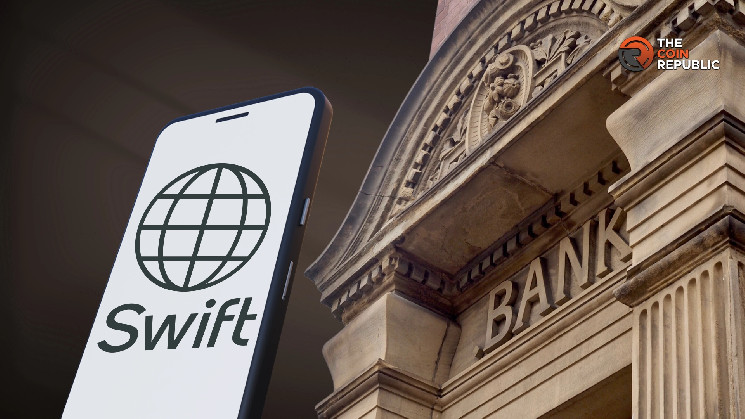North American, European, and Asian banks will start conducting live bilateral transactions in digital assets on the SWIFT network in 2025. This is a great leap forward toward incorporating digital currencies and assets into existing financial systems.
The pilot will allow international financial institutions to process transactions with digital currencies and other assets using the existing SWIFT infrastructure. Additionally, the live exercises will show how organizations can settle transactions using digital and fiat currencies operating within SWIFT’s infrastructure.
SWIFT has been working for the last couple of years on the feasibility of linking public and private blockchains and linking cross-border payments with CBDCs. Now, the organization is moving from experimental simulation to practical application.
Interlinking Digital and Traditional Platforms
These live trials will countercheck the issue of fragmented digital asset networks that prevent the overall acceptance of digital assets. SWIFT aims to develop a linked system that facilitates smooth cross-border transactions by integrating conventional and cryptocurrencies through one gateway.
According to SWIFT’s Chief Innovation Officer Tom Zschach,
“Given its global membership and the fact that it connects both new and traditional forms of value, SWIFT is well placed to facilitate both.”
These trials will enable financial institutions to experiment with the opportunity of performing digital transactions together with conventional ones. More so, the initiative will integrate various platforms so that digital currencies do not exist in the so-called ‘digital islands,’ thus having no connection with the regular financial systems. The move comes as institutional investors are showing more interest in tokenized securities.
Cross-border Payment Solutions and Collaborations
SWIFT’s trials aim to improve the existing cross-border payment system, which is a significant segment for financial institutions. In 2024, the Hong Kong Monetary Authority and Banque de France piloted SWIFT’s solution for foreign exchange for wholesale payment systems.
These ongoing tests are part of the European Central Bank’s research activities on the use of new technologies in payment systems. The live trials will look at how SWIFT can plug into bank-driven networks such as the US Regulated Settlement Network.
This links conventional financial institutions with new-fangled digital players. Furthermore, SWIFT is part of Project Agora, a research project by the Bank for International Settlements. The project explores how tokenized commercial bank deposits and wholesale CBDCs can be interconnected into a single payment system.
SWIFT Facing Growing Competition from Ripple
Even though SWIFT occupies the leading position in the cross-border payment market, it is challenged by new market entrants that use blockchain technology, including Ripple. In a report from investment bank Houlihan Lokey, Ripple was identified as a competitor to SWIFT.
This is because it can process transactions faster and at a lower cost through the use of its own blockchain. The platform has expanded its portfolio through partnerships with payment providers such as Airwallex and Nium in the international markets.
Ripple, for instance, uses blockchain to transfer funds across borders. This is usually done through several middlemen and takes time and costs more. It position Ripple as a major player in a market that processes more than $190 trillion worth of transactions annually.
With increasing needs for instantaneous cross-border payments, Ripple and other similar platforms are coming into the spotlight. Recent speculation suggests that SWIFT may eventually recognize XRP, Ripple’s bridge currency, for its network of more than 11,500 banks. While there has been no official confirmation from SWIFT, integrating XRP into traditional financial systems could reshape global payments.
 thecoinrepublic.com
thecoinrepublic.com
